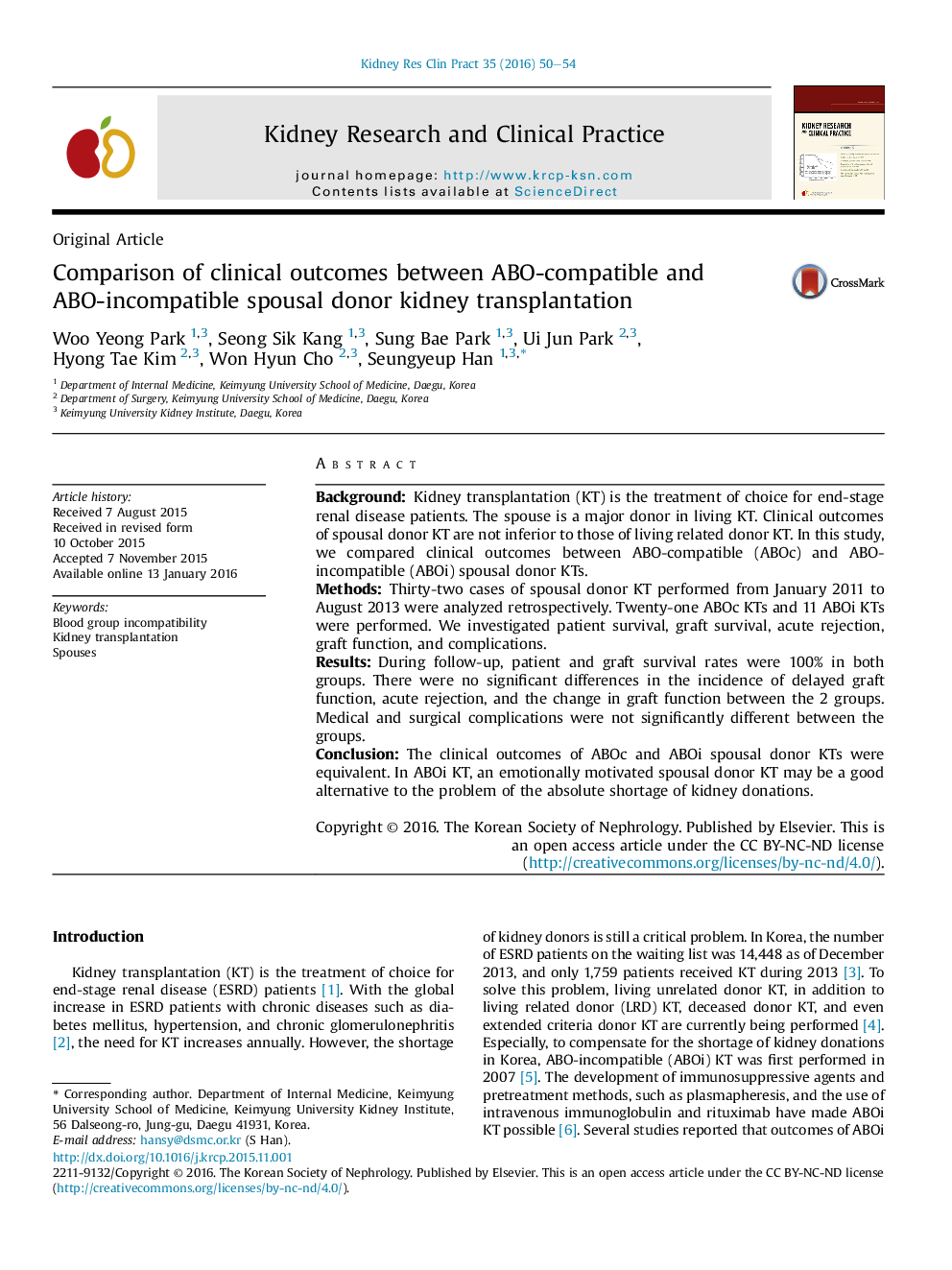| Article ID | Journal | Published Year | Pages | File Type |
|---|---|---|---|---|
| 3890780 | Kidney Research and Clinical Practice | 2016 | 5 Pages |
BackgroundKidney transplantation (KT) is the treatment of choice for end-stage renal disease patients. The spouse is a major donor in living KT. Clinical outcomes of spousal donor KT are not inferior to those of living related donor KT. In this study, we compared clinical outcomes between ABO-compatible (ABOc) and ABO-incompatible (ABOi) spousal donor KTs.MethodsThirty-two cases of spousal donor KT performed from January 2011 to August 2013 were analyzed retrospectively. Twenty-one ABOc KTs and 11 ABOi KTs were performed. We investigated patient survival, graft survival, acute rejection, graft function, and complications.ResultsDuring follow-up, patient and graft survival rates were 100% in both groups. There were no significant differences in the incidence of delayed graft function, acute rejection, and the change in graft function between the 2 groups. Medical and surgical complications were not significantly different between the groups.ConclusionThe clinical outcomes of ABOc and ABOi spousal donor KTs were equivalent. In ABOi KT, an emotionally motivated spousal donor KT may be a good alternative to the problem of the absolute shortage of kidney donations.
